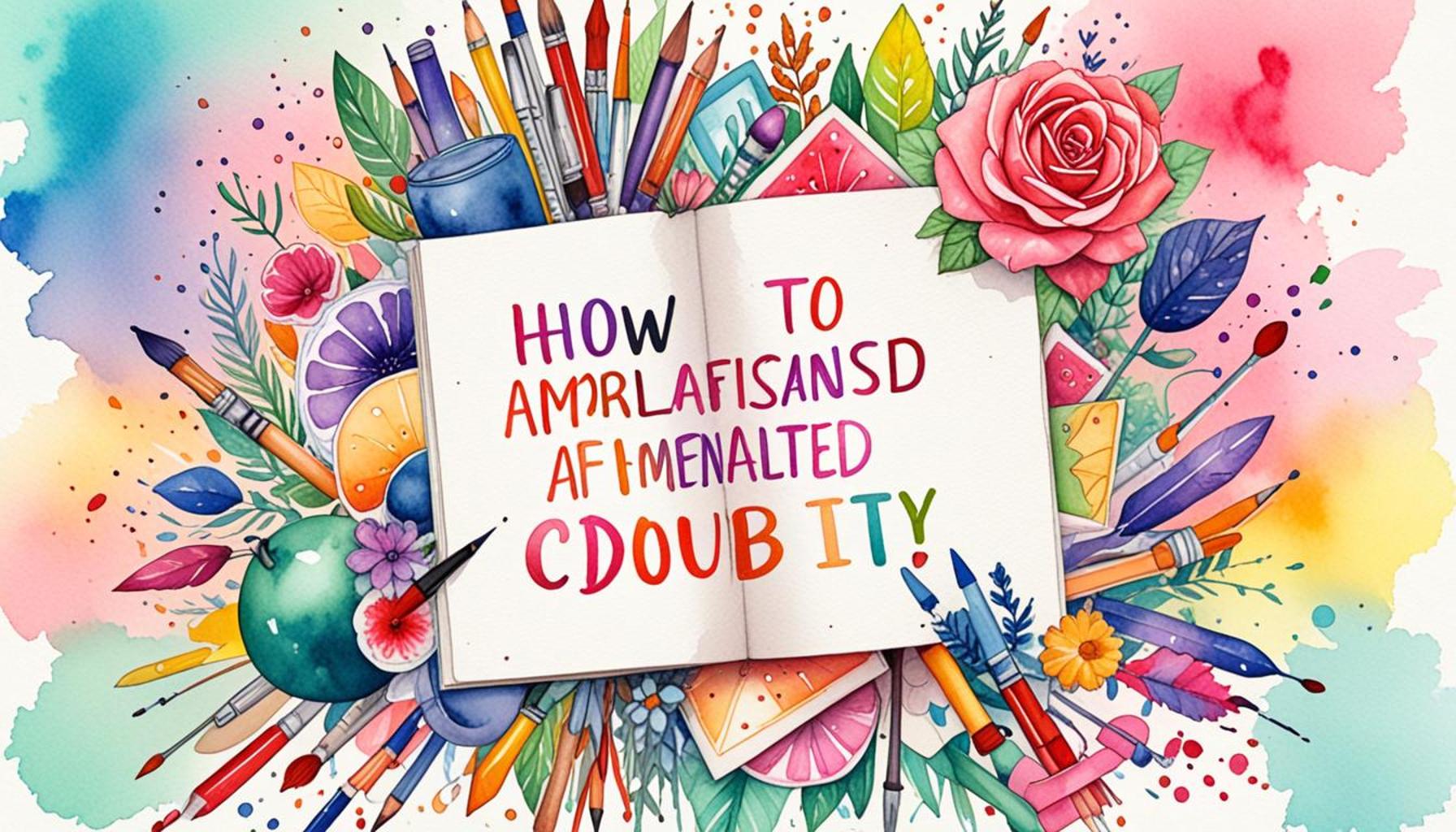Positive Affirmations and Their Influence on Mental Clarity During Life Changes

Understanding the Power of Positive Affirmations
Life transitions can often feel overwhelming, bringing a whirlwind of emotions and uncertainties. During these challenging times, positive affirmations offer a beacon of hope and clarity. By reframing thoughts and beliefs, individuals can harness the power of affirmations to support their mental well-being during pivotal moments in their lives.
The Role of Affirmations in Mental Clarity
Positive affirmations act as conscious reminders of one’s strengths and capabilities, carving out space for personal growth. They are powerful tools that can fundamentally alter our thought patterns. Here’s how they contribute to enhanced mental clarity:
- Enhance self-esteem: Engaging in daily affirmations can foster a more positive self-image. For instance, someone struggling with self-doubt can repeat affirmations such as “I am capable and confident,” which can help in reshaping their perceptions.
- Improve focus: By repeating affirmations, individuals can sharpen their mental clarity and concentrate better on tasks ahead. This process can be especially beneficial in a busy work environment, where distractions are prevalent, allowing individuals to ground themselves and remain task-oriented.
- Reduce anxiety: Affirmations can serve as a calming tool, lessening feelings of uncertainty and stress. For example, a student facing exam pressure might affirm, “I am prepared and will succeed,” which can help alleviate tension and promote a clear mind.
Life Changes and Affirmations in Nigeria
In Nigeria, a nation characterized by dynamic life changes—from career shifts to family dynamics and relocation—positive affirmations hold significant relevance. They provide essential support in various contexts:
- Support during job transitions: In an evolving economy, affirmations help individuals promote confidence in their professional capabilities. A recent graduate, for instance, might say, “I attract opportunities that align with my skills,” as they navigate the job market.
- Strength during family changes: Affirmations also encourage resilience amid personal challenges, such as the complexities of family rearrangements. Statements like “I choose to grow from these experiences” can empower individuals dealing with divorce or separation issues.
- Encouragement in new environments: For those adapting to fresh cultural surroundings—be it in a different city or country—affirmations can ease the transition. Phrases like “I embrace new experiences and learn from them” can foster a sense of belonging and adventure.
As we delve deeper into the influence of positive affirmations, we uncover their transformative potential in fostering mental clarity throughout life’s inevitable changes. In a world filled with challenges, individuals armed with positive affirmations can approach their obstacles not with fear, but with hope and assurance. Engaging in this practice is not merely about positive thinking; it’s about creating tangible shifts in our perceptions, ultimately enabling us to face life’s uncertainties with courage and strength.
SEE ALSO: Click here to read another article

The Mechanisms Behind Positive Affirmations
Understanding how positive affirmations exert their influence is crucial for anyone looking to enhance their mental clarity, especially during life changes. The science behind affirmations lies in their ability to tap into our brain’s neuroplasticity—the capacity to rewire our thinking patterns and emotional responses. This transformative process is beneficial during times of upheaval, offering individuals the means to process transitions with greater ease.
The Psychological Underpinnings
Research indicates that repeating positive affirmations can lead to significant changes in cognition. When individuals engage in this practice, they activate areas of the brain tied to self-relevance and emotional regulation. In essence, affirmations serve not only as motivational mantras but also as psychological exercises that help soothe stress responses:
- Neuroscience of Affirmations: Studies show that practicing positive affirmations can result in increased levels of self-affirmation, thereby boosting motivation and decreasing defensiveness. Particularly during times of change, individuals are likely to encounter challenges that can trigger anxiety, but affirmations can track positive routes in the brain, allowing for healthier coping mechanisms.
- Positive Feedback Loop: As people engage in affirmations, they begin to create a feedback loop where positive beliefs reinforce one another. For instance, someone who frequently affirms “I am resilient and successful” is more likely to embrace opportunities that align with this new belief, gradually building confidence and clarity in their actions.
- Emotional Regulation: Affirmations can significantly improve emotional regulation. For instance, a parent adjusting to a new family dynamic might affirm, “I can adapt and find solutions,” promoting a more composed approach to parenting challenges. This kind of self-talk can mitigate emotional outbursts and enhance problem-solving skills.
Cultural Context and Relevance in Nigerian Society
In Nigeria, where societal changes are prevalent—be it through economic shifts, urban migration, or changes in family structures—positive affirmations resonate deeply within the community. They provide a way for individuals to find grounding amidst chaos:
- Embracing Change: Affirmations encourage resilience in the face of rapid changes, particularly among the youth who are often navigating shifting societal expectations. A young professional may find strength in recognizing their worth by saying, “I bring value to my work environment,” thus facilitating career adaptability.
- Strengthening Family Bonds: Affirmations can also bridge communication within families. For example, affirmations like “We grow stronger together” can uplift the spirit of unity during times of family crisis.
- Community Inspiration: In local contexts, sharing affirmations can inspire collective motivation. Community gatherings centered around encouragement could incorporate phrases like “We can achieve great things together,” enhancing social cohesion.
As the exploration of positive affirmations unfolds, individuals are encouraged to see these statements not merely as positive thinking but as powerful catalysts for change. By integrating affirmations into daily routines, people can cultivate mental clarity, creating a proactive approach to life’s inevitable shifts. With the right mindset, those facing transitions can discover newfound strength and adaptability, steering their narratives toward success.
| Advantages | Influence on Mental Clarity |
|---|---|
| Improved Self-Esteem | Affirmations cultivate a more positive self-image which can facilitate decision-making during transitional periods. |
| Enhanced Focus | By repeating affirmations, individuals can center their thoughts, reducing distractions caused by uncertainty in life changes. |
| Reduced Anxiety | Positive statements can alleviate stress, enabling clearer thought processes amid challenges. |
| Goal Orientation | Affirmations help in clarifying personal objectives, which is crucial when navigating through life transitions. |
This structured approach highlights key advantages of employing positive affirmations that can significantly bolster mental clarity during life changes. Not only do they enhance self-esteem and focus, but they also play a pivotal role in reducing anxiety and orienting personal goals. As individuals navigate through various transitions, such as career shifts or personal developments, understanding the depth of these benefits can elevate their resilience and effectiveness in managing change. Understanding how to utilize affirmations strategically can lead to powerful transformations, encouraging deeper exploration into their application and impact.
SEE ALSO: Click here to read another article
Incorporating Positive Affirmations into Daily Life
To experience the transformative power of positive affirmations, it is essential to incorporate them into daily life through structured practices. Consistency is key; establishing a routine can enhance the effectiveness of affirmations and, subsequently, influence mental clarity during life shifts.
Practical Strategies for Implementation
Integrating affirmations into your day can be as straightforward as dedicating a few minutes daily. Here are some practical strategies tailored for individuals navigating life changes:
- Morning Rituals: Starting the day with affirmations can set a positive tone. For instance, someone facing a career transition might affirm, “I attract new opportunities effortlessly.” This simple routine can mentally prepare individuals for whatever challenges the day may bring.
- Reflection Journals: Keeping a journal that focuses on affirmations can solidify their impact. Reflecting on experiences and documenting how positive self-talk influences feelings and actions can enhance mental clarity. For example, a student swamped with exams could write, “I am capable of mastering my courses,” enabling them to confront their studies with a clear mindset.
- Visual Reminders: Placing affirmations where they can be seen frequently can reinforce positive thoughts throughout the day. This may include postings on mirrors or as screensavers on devices. The visibility of phrases like “Challenges are opportunities for growth” can serve as constant encouragement when faced with demanding situations.
Community and Group Affirmation Practices
The collective nature of Nigerian culture allows for community-driven affirmation practices, amplifying their effects:
- Group Settings: Participating in or creating small groups focused on personal development can facilitate shared affirmations. For example, a community workshop could revolve around phrases like “Together, we can create positive change,” fostering an environment of support and encouragement.
- Faith-Based Gatherings: In Nigeria, religious gatherings often emphasize the power of positive speech. Incorporating affirmations into prayer groups can deepen the spiritual experience, where participants affirm statements like “I am guided and protected,” nurturing a sense of clarity during challenging times.
- Cultural Festivals: Leveraging cultural celebrations to promote positive affirmations can enhance collective identity. During events, communities might chant affirmations that resonate with their experiences, such as “We thrive in unity,” reinforcing psychological resilience against societal changes.
The Research and Results of Affirmation Practices
Evidence supporting the efficacy of affirmations is growing, with studies suggesting noteworthy psychological benefits:
- Stress Reduction: Research has demonstrated that the practice of positive affirmations reduces levels of cortisol, the stress hormone. This outcome is particularly salient for individuals undergoing life changes, as lower stress can lead to enhanced focus and clearer decision-making.
- Increased Self-Esteem: Engaging regularly with affirmations can lead to improved self-esteem and self-worth. People who consistently practice affirmations report feeling more in control during transitions, helping them confront challenges with greater confidence and clarity.
- Enhanced Learning and Adaptation: Positive affirmations are also correlated with improved learning outcomes. Those who regularly affirm their abilities tend to adapt to new circumstances more readily, thus maintaining clarity even in the face of uncertainty.
By weaving positive affirmations into the fabric of daily life, individuals can create a solid foundation for mental clarity, especially during challenging transitions. This practice not only nurtures personal growth but also enhances resilience in communities, paving the way for a more supportive and empowering environment. As these affirmations take root, they may just become the guiding stars that shine through life’s inevitable changes.
LEARN MORE: This related article may interest you
Conclusion: Embracing Positive Affirmations for Mental Clarity
In navigating the turbulent waters of life changes, incorporating positive affirmations becomes an invaluable tool for fostering mental clarity. By consciously engaging in affirmations, individuals can reshape perceptions, bolster self-confidence, and maintain focus amid uncertainty. The strategies discussed—from morning rituals to communal practices—highlight the personal and collective benefits of affirmations. In Nigeria’s dynamic cultural context, these practices can promote resilience and support networks, crucial for facing life’s transitions.
The growing body of research substantiates the claim that positive affirmations not only reduce stress but also enhance self-esteem and adaptability, permitting individuals to communicate with greater clarity and purpose. As one engages in this empowering practice, it’s important to remain consistent and intentional; even small, daily efforts can yield significant transformations over time.
In conclusion, by embedding positive affirmations into everyday routines, individuals can create a strong foundation for their mental well-being, enabling them to stride confidently through life changes. The journey may be daunting, but with affirmations lighting the pathway, one can cultivate a sense of clarity and purpose, fostering personal growth and resilience in both individual and community contexts. Thus, as we continue to redefine our lives, let us remember that the power of our words can act as a catalyst for meaningful change.


